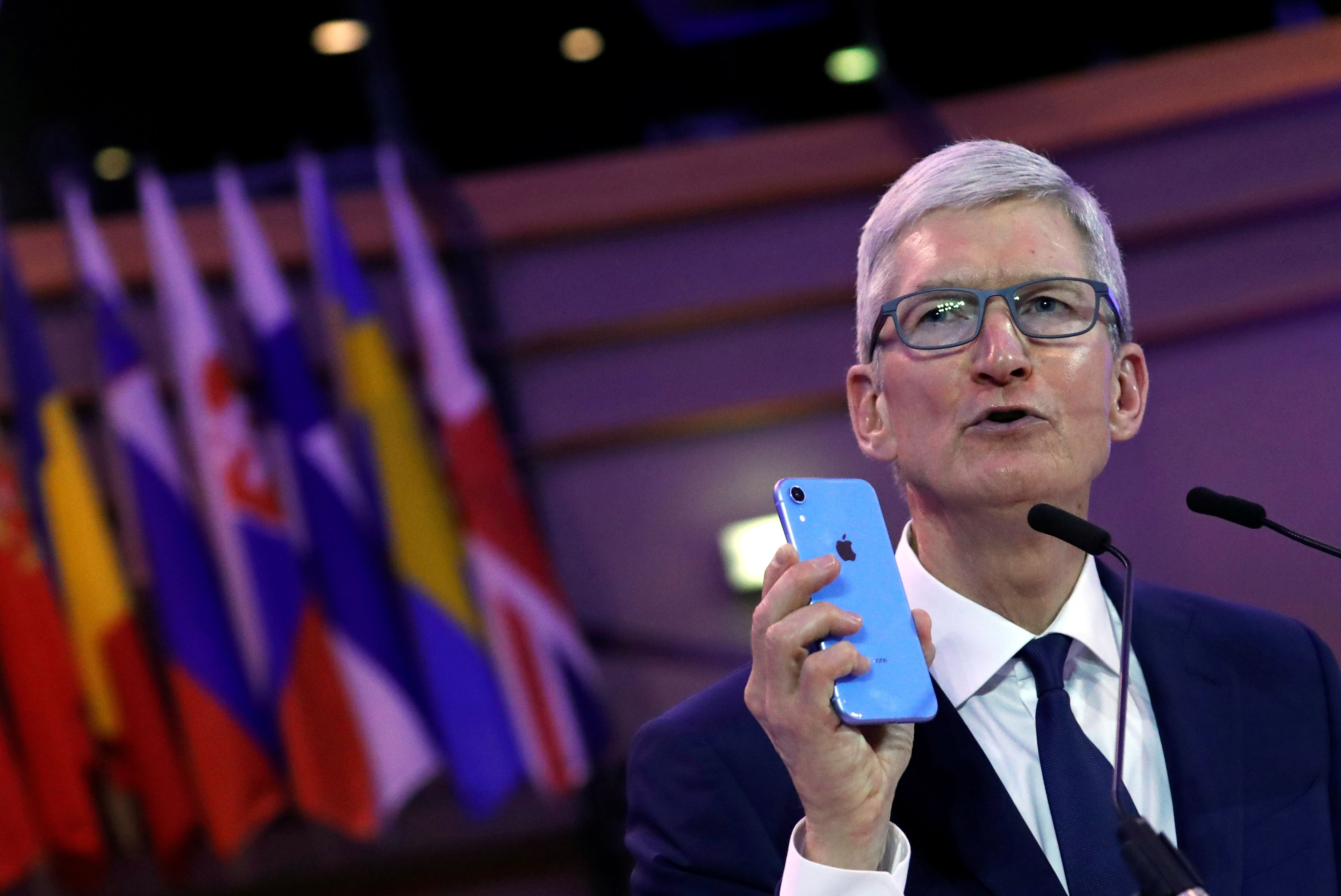Internet Platforms in the EU’s Focus

Problems in the Functioning of the Digital Market
Online platforms’ business models (websites/services providing virtual interactions between digital market users) have led to the monopolisation of some service areas in recent years, drawing attention from regulatory authorities both in the EU and abroad, particularly in the U.S. and China. Classic definitions of competition policy in the market, view of dominant positions, or criteria for mergers and acquisitions do not resonate with the pace of change on the digital market. Since 2000, the five leading platforms—Google, Apple, Facebook, Amazon, and Microsoft, a group dubbed “GAFAM”—took over a total of 1,000 companies worldwide. Most of the purchased entities were small (did not generate high turnover), so 90% of these transactions fell below the threshold for assessment by relevant antitrust organs, including the European Commission (EC). Over the past 20 years, no merger was blocked, although the acquisition of such companies as Instagram (2012) and WhatsApp (2014) by Facebook permanently removed them as potential competitors in their respective service sectors.
The EC monitors compliance with competition principles and initiates antitrust proceedings against entities that violate them. In 2017, it decided that Google favours its own services by abusing its dominant position on the browser market. After being given a penalty of €2.42 billion, the company changed its algorithm for offers in search. A year later, the EC imposed on the company a more than €4.3 billion penalty for practices enhancing Google Search in all devices with the Android operating system. However, such proceedings usually last a few years, and final fines do not appear to reduce the competitive advantage of the companies. In 2018, Google’s annual global revenue amounted to more than $130 billion, and in just the first quarter of 2021 (during the COVID-19 pandemic), $53.3 billion. They also do not compensate for the damages done to competitors or limited choice to the consumers.
The platforms have access to data (especially personal data) that they process in an advanced way thanks to the developed technology (e.g., using artificial intelligence, AI). The dominant platforms’ competitive advantage is largely based on the huge quantities and breadth of quality data they have about users. They use this data for the best fit for the sides in transactions (both private and business users). Takeovers of companies offering complementary or competitive services (such as the purchase of WhatsApp by Facebook) additionally increase the data resources in the hands of the dominant platforms. Users often face a false choice when giving (or denying) consent to the processing of personal data based on the applicable GDPR (General Data Protection Regulation). The lack of such consent prevents them from using the services for which there are no real alternatives on the market (due to the lack of access to specific users or business entities).
Finally, the problem is the lack of collection of taxes from revenues achieved in the EU by the largest technological films, including internet platforms. This phenomenon is supported by the policy of some countries, for example, Ireland or Luxembourg, which offer favourable tax conditions (including generous CIT rates) for European representations of the largest companies. The EC estimates that the lack of taxes from revenues derived from data obtained from users of the offered services can cause an outflow from the EU of up to €5 billion per year.
The EC’s New Proposals on Platform Regulation
In December 2020, the EC published two proposals for regulating digital economy: Digital Services Act (DSA) and the Digital Markets Act (DMA).
The DSA mainly constitutes a thorough update of the E-Commerce Directive from 2000. Among the most important points are the amendments to online trade rules (security, privacy of data, products offered, and responsibilities for commercial intermediaries), and principles of moderating content (requirement to remove harmful/illegal content, although it lacks a top-down order to monitor the content published by users), as well as advertising transparency (platforms must explain to the user why a given advertisement is displayed). The proposed provisions are to be proportional to the size of the platform: the larger, the wider the scope of regulation.
In turn, the DMA imposes duties and prohibitions on so-called gatekeepers. These are enterprises with a significant market position as service owners (search engines, social networks, advertising services, etc., and video-sharing platforms), enabling the companies to reach a large number of end users (consumers). Although the EC does not name any particular entity, the criteria of “gatekeepers” certainly pertains to Apple, Facebook, and Google. The regulations have two objectives: to stop behaviour that prevents competitors from entering the market and ensure the fair treatment of contractors using the platforms’ services. The regulation proposal bans combining personal data obtained by the company through its various services or enabling business users to report to relevant public authorities regarding the practices of the platform. The EC also foresees the obligation to share data with business users and consumers. It also wants to prevent platforms from using data generated by its business users that is not public to obtain a competitive advantage over them (for example, to tailor offers provided by the platform). Gatekeepers are to be defined as platforms that have more than 45 million active users per month and at least 10,000 active business users annually. The criteria selected so far means that the DMA will affect primarily those platforms that have already been punished by the EC for breaking competition principles. It is anticipated that the criteria set out in the regulation currently pertains to the five leading American technology companies (GAFAM), but not a single Chinese platform. In the EU, it will most likely affect SAP, perhaps Booking.com, Spotify, or Airbnb (depending on the final version of the DMA).
The December proposals are novel in that the regulations would in effect be anticipating undesirable activities of the platforms (ex ante), which differs from the ex-post fines posed by the EC in the antitrust proceedings.
Challenges
The negotiations of the new digital regulations may take from one year to several. It will be necessary to reconcile the Member States’ positions on the regulations and harmonise existing state provisions. Flashes of disputes are visible in the debate around the DSA. Austria, France, and Germany want to increase the liability of platforms that are currently not obliged to undertake preventive monitoring of content in terms of hate speech or false news. They believe that a rapid reaction by platforms is key to reducing the spread of harmful and manipulative information. In 2018, Germany and France appealed to the EC to order the largest platforms to remove illegal and harmful content within an hour of their publication under threat of financial penalty. The demands were partially modelled on the German Network Enforcement Act from 2017. A different position on liability for published content is held by the “Digital D9+” group of countries—Poland, Belgium, Czechia, Denmark, Estonia, Finland, the Netherlands, Ireland, Luxembourg, and Sweden. In their opinion, the provisions of the legal act releasing internet services firms (intermediaries) from liability for content must be maintained. Too restrictive provisions may lead to wider use of automatic scanning filters by the platforms that limit freedom of expression, arguing this can be particularly harmful to discriminated groups and minorities.
Differences are also notable in the field of regulation of gatekeepers. Belgium, France, and the Netherlands postulate the enhancement of ex ante regulations, also in the area of mergers. On the other hand, Nordic states Denmark, Finland, and Sweden are cautious about imposing additional duties on the platforms, fearing negative consequences for consumers (e.g., costs, restrictions on the functionality of services). Ireland, even before the publication of the EC’s official position, questioned the rationale of preventive regulations.
A further challenge will be balancing the scope of regulation in such a way as not to reduce innovation or benefits for users. The largest platforms regularly acquire developing companies before they threaten the larger companies’ business models. These so-called “killer acquisitions” decrease the number of entities on the market and often lead to the monopolisation of a given service sector, which adversely affects innovation because the company no longer has a competitor. On the other hand, some small startup business models are designed specifically to become an attractive acquisition target for a particular platform by developing an innovative product or service with a mid or long-term perspective.
The new regulations in the digital sector will be an organisational and political challenge for the Commission. With the increased competences, the EC will need more financial and personal resources to effectively supervise the proposed regulations. Currently in DG COMP, the unit responsible for enforcing competition rules on the market of nearly 500 million people, operates with about 850 people.
Conclusions and Recommendations
The EU has a chance to become a pioneer in an area where it has always been strong: creating standards and regulations focused on ensuring competitiveness, economic integration, and respect for citizens’ rights. Regulations developed in the EU markets and digital services will be the first in the world and should reduce fraud and trends towards monopolistic platforms with dominant positions on the market. In addition, the planned legislation has a chance to support competitiveness and innovation on the digital single market. The EU should focus on their rapid introduction, and subsequently update the rules on mergers and acquisitions while taking into account criteria specific to digital markets (where “killer acquisitions” are frequent).
The EC, as the main regulatory body in this area, should increase the number of personnel responsible for supervising the activities of internet platforms, as well as engage supervisory institutions from the Member States. There must also be efficient mechanisms for the adaptation of rules to a dynamically changing digital economy. For this purpose, it is necessary to exit the EC’s bureaucratic way of functioning. It must employ officials with relevant competences and make investments in tools to assess the activities of platforms (including the use of AI systems).
The EU should build on the recent political change in the U.S. In recent years, internal pressure on the largest tech companies in the area of antitrust practices has resulted in a number of lawsuits at the state and federal level in the United States against, among others, Facebook and Google. The Biden administration can reinforce transatlantic cooperation in, for example, the framework of the Trade and Technology Council proposed by the EC to counter China’s aim of technological dominance. For the EU, wider cooperation on regulation is important (including data protection for American companies’ clients), as well as on taxes (from the largest technology companies from OECD members) and standards for the use of AI systems used in the products and services of the largest platforms.
For Poland, which in April 2021 presented its position regarding the DSA and DMA proposals, it would be beneficial to build a wide coalition of countries supporting an increased role for state administrations in supervision of the activities of platforms and in the selection of the gatekeepers. As part of the DSA, it will be important to build consensus around non-discriminatory provisions (without a top-down obligation to monitor content) and preventing excessive burdens for smaller platforms in accordance with the principle of proportionality.


